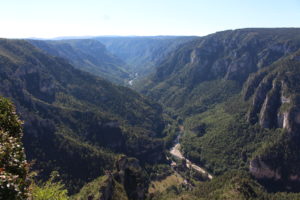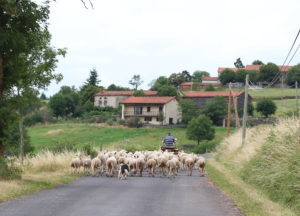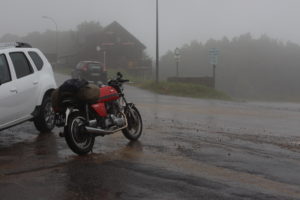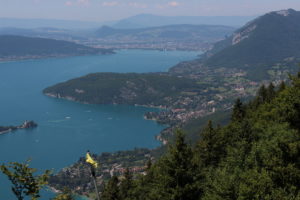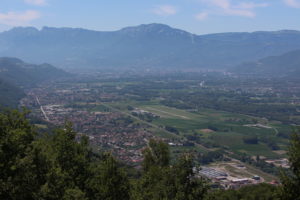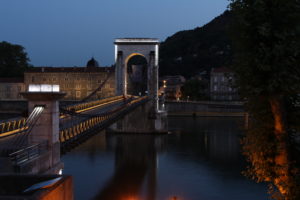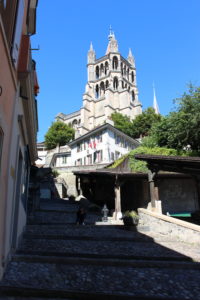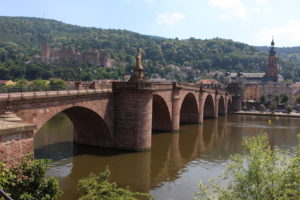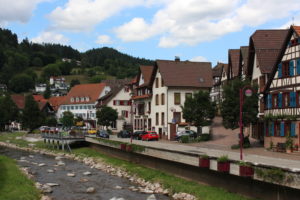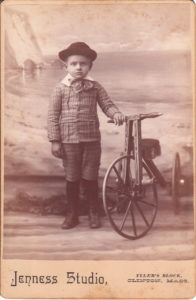A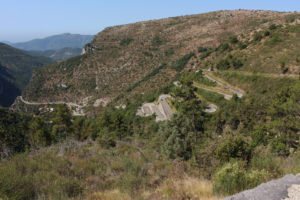 ugust 2: When planning my route, I am inevitably drawn to the yellow squiggly lines on the Michelin maps I use. They denote local roads, which I always imagine to be flowing, well-engineered and recently paved. Some turn out well, like this one on Col de Braus north of Nice. Others turn out to be narrow, gravel-strewn donkey tracks that leave me muttering into my helmet about my sanity for having chosen so poorly. Picture a poorly maintained road in the Kawarthas with a 100 metre drop-off on one side and no guide rail…
ugust 2: When planning my route, I am inevitably drawn to the yellow squiggly lines on the Michelin maps I use. They denote local roads, which I always imagine to be flowing, well-engineered and recently paved. Some turn out well, like this one on Col de Braus north of Nice. Others turn out to be narrow, gravel-strewn donkey tracks that leave me muttering into my helmet about my sanity for having chosen so poorly. Picture a poorly maintained road in the Kawarthas with a 100 metre drop-off on one side and no guide rail…
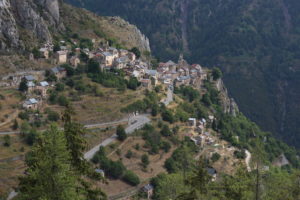 The thing is, so many of those roads lead to places like Roubion, seen here perched above the Vionene River. Towns of this period were built to be inaccessible to a certain extent; people needed to defend themselves from attack. And the roads likely developed from the paths that meandered between towns. So accepting the challenge of riding less-than-comfortable routes has the reward of visiting someplace special.
The thing is, so many of those roads lead to places like Roubion, seen here perched above the Vionene River. Towns of this period were built to be inaccessible to a certain extent; people needed to defend themselves from attack. And the roads likely developed from the paths that meandered between towns. So accepting the challenge of riding less-than-comfortable routes has the reward of visiting someplace special.
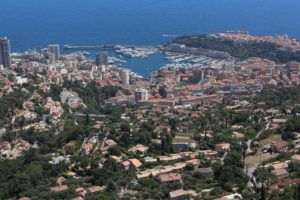 Seeking to avoid a torturous ride through Nice yesterday afternoon, I happened upon a yellow squiggly one that ran through the hills north of the Riviera. Some of these can be very rewarding, if for no other reason than you are not stuck in downtown Nice in 34C heat wearing full riding gear. This particular road had the added reward of leading to La Turbie, where you are rewarded with this special view of Monte Carlo.
Seeking to avoid a torturous ride through Nice yesterday afternoon, I happened upon a yellow squiggly one that ran through the hills north of the Riviera. Some of these can be very rewarding, if for no other reason than you are not stuck in downtown Nice in 34C heat wearing full riding gear. This particular road had the added reward of leading to La Turbie, where you are rewarded with this special view of Monte Carlo.
Today I start moving north into the Alps. Most of the roads there are yellow squiggly ones and I know from experience that they are challenging. My reward will be the satisfaction of motorcycling through them. And some truly special scenery.
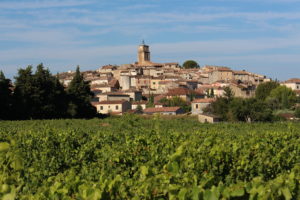
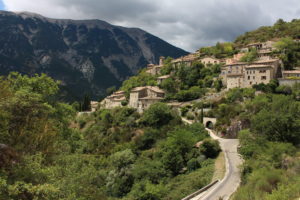
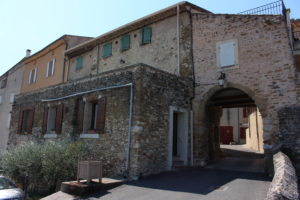
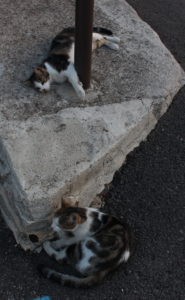
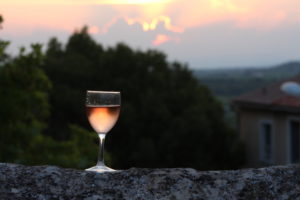
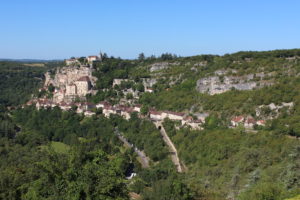 missionary near the site around 1100, and constructed a small. chapel. In time, a number of miracles were attributed to a small carving of Notre Dame, believed to have been carved by him, and the site became a pilgrimage destination and a stop on the Santiago de Compostela. A larger chapel was constructed (the largest building near the centre of the shot) and inns, and then hotels and all the other trappings of modern tourism sprang up. Today there is a small village rising in steps 120 metres up the face of a cliff and it is among the most visited sites in France. It is also crawling with tourists, so many that it is easy to lose the religious significance of the site in the carnival atmosphere that prevails.
missionary near the site around 1100, and constructed a small. chapel. In time, a number of miracles were attributed to a small carving of Notre Dame, believed to have been carved by him, and the site became a pilgrimage destination and a stop on the Santiago de Compostela. A larger chapel was constructed (the largest building near the centre of the shot) and inns, and then hotels and all the other trappings of modern tourism sprang up. Today there is a small village rising in steps 120 metres up the face of a cliff and it is among the most visited sites in France. It is also crawling with tourists, so many that it is easy to lose the religious significance of the site in the carnival atmosphere that prevails.